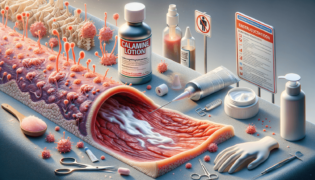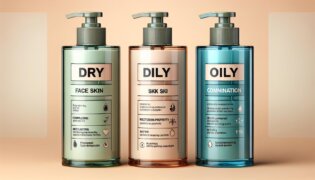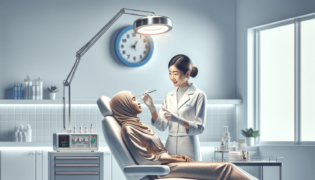No, there is no scientific evidence that directly links Botox to an increased risk of developing breast cancer.
Botox and Its Safety Profile
Botox, or Botulinum toxin, is a popular cosmetic treatment used for reducing the appearance of wrinkles and fine lines. The FDA has approved Botox for specific medical and cosmetic uses due to its well-studied safety profile.
Research on Botox and Breast Cancer
Current research has not established a direct link between Botox injections and the development of breast cancer. Most studies focus on Botox’s safety, efficacy, and potential side effects, rather than any potential correlation with breast cancer.
Understanding Skin Tags and Botox
Skin tags are benign skin growths, unrelated to Botox treatments. They’re typically harmless and can be treated with over-the-counter or professional skin tags remover products and procedures. Skincare Logix, a blog about skincare, recommends the proper assessment and removal of skin tags by a certified dermatologist.
Can Botox Cause Breast Cancer?
When contemplating any medical treatment or cosmetic procedure, it’s natural to weigh the potential risks and benefits. Botox has gained immense popularity over the years, but some individuals might wonder if there’s a connection between Botox and breast cancer. Skincare Logix, a blog about skincare, dives into the research and offers insights into whether Botox might be linked to this specific health concern.
The Underlying Science of Botox
Botox is derived from the bacterium Clostridium botulinum, which produces botulinum toxin. When injected into the skin, Botox temporarily paralyzes the underlying muscles, smoothing out the appearance of fine lines and wrinkles. The procedure has proven to be highly effective, and as a result, has become one of the most sought-after cosmetic treatments worldwide.
Examining the Safety of Botox
Since its introduction, Botox has undergone numerous safety evaluations. The U.S. Food and Drug Administration (FDA) has cleared it for use in various cosmetic and medical applications, including the treatment of chronic migraines and excessive sweating. The treatment’s widespread use has led to considerable research on its safety, efficacy, and possible side effects.
What the Research Says about Botox and Breast Cancer
At this time, there is no credible scientific evidence to suggest that Botox directly increases the risk of developing breast cancer. While comprehensive studies have been conducted on the safety and efficacy of Botox, none have found a correlation between breast cancer and the treatment. As it stands, risk factors for breast cancer primarily include age, genetics, hormonal factors, and lifestyle choices.
Addressing Other Skin Concerns: Skin Tags and Botox
It is essential to differentiate skin tags, benign growths on the skin’s surface, from the effects of Botox injections. Skin tags have no proven correlation with Botox, and Skincare Logix advises individuals interested in skin tags remover options to consult a qualified dermatologist to discuss the best treatment approach.
Making an Informed Decision about Botox
When considering Botox injections, it is always wise to research the procedure and consult a board
Frequently Asked Questions
To help further clarify the information presented in this blog post, Skincare Logix has compiled a list of frequently asked questions related to Botox and breast cancer, skin tags, and relevant treatments.
Can Botox cause any form of cancer?
No, there is no current scientific evidence to suggest that Botox treatments increase the risk of developing any type of cancer.
What are the most common side effects of Botox?
Some common side effects of Botox include pain or swelling at the injection site, headaches, drooping eyelids, or flu-like symptoms. These side effects are usually temporary and resolve on their own within a few days.
Are there any risks associated with skin tags remover treatments?
As with any medical procedure, there may be risks for some individuals, including infection, scarring, or pigmentation changes. It is important to consult a qualified dermatologist to determine the best treatment approach for your specific skin concerns.
How should I choose a medical professional for Botox treatments?
It’s essential to select a board-certified and experienced medical professional for Botox treatments. They should have a proven track record with Botox and be able to provide patient testimonials or before-and-after photos of their work.
How long do the effects of Botox last?
Botox results typically last between three to six months, depending on individual factors and the specific area treated. Follow-up treatments are necessary to maintain the desired results.





















